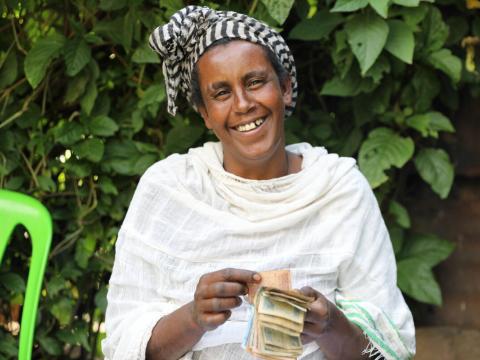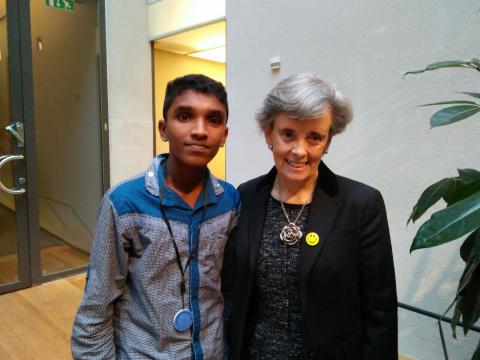
When saving money means saving lives
By Stephen Lockley
Value for money in humanitarian work is a tricky topic. After all, what value can you place on a child’s life? How do you attach a monetary value to ending violence against girls in an entire community?
As the global head of our finance and administration work, it will not surprise you to hear I want to make sure we don’t spend one dollar more on overhead costs than we need to. Every dollar matters, and needs to contribute to our goal of achieving hope, joy and justice for all children, especially the most vulnerable. If we aren’t prioritising spending money on our ministry work, we may not be doing as much as we believe we have been called to do, in the most effective and efficient way possible.
As a former banker, working for more than 20 years in senior roles in the financial sector, I know that keeping costs down is about behaviour change – looking at things differently, not just spending less.
Five years ago, when I took on the role of Chief Financial Officer at World Vision, we set ourselves on a path to change the way we looked at our central costs, the way we value our work, and how we budget. My team led a major piece of work around value chain analysis. We needed to know and be able to articulate the value of every activity we spent money on. And on everyone’s favourite topic – budgets – we started at zero. Literally. We moved to a zero-based budgeting approach. Since that beginning we have continued to drive efficiency through simplification and continuous improvement, while maintaining an ability to be innovative and agile.
This is a journey and I can never be fully satisfied – especially as we watch COVID-19 devastate children and their families – but I am comfortable that we are heading in a good direction. We judge ourselves on two important figures:
- Yield to Programming – the amount that goes to our programming work having a direct impact on vulnerable children’s lives, including advocacy and campaigning, and technical support. The figures continue to increase, and last year this was 87% of our total revenues.
- Yield to Field Programming – the amount that goes to direct field work. Again, this figure improves every year, and last year was above 78% of revenue.
COVID-19 has inevitably presented many challenges for us but, on a positive note, we have learned a lot over the past year about alternative ways of working, and I have been pleased to see how quickly our teams and offices have adjusted with agility to the new reality. One lasting consequence will be our ability to significantly reduce travel costs. Would we ever have done this without being forced to do it? Some of the answer to that has to do with technology, and the ability to take work virtual, but actually getting people to change behaviour when they don’t have to is more difficult.
Crises like this one, and the financial crash of 2008, can force change that was lurking in the background but needed a push to come out into the daylight. We will never be a zero-travel organisation, because we need to be able to audit work, see and meet children, and ensure donors can see the impact of their support for our work. I welcome healthy debate – inside organisations and outside – about this topic as I don’t think any of us have quite figured out the perfect answer just yet.
Perhaps one of the biggest differences between this non-profit world and the banking world I worked in previously is that when you have a ministry goal, not a profit goal, the decisions you take about where to cut, what to increase, where to direct attention are never straightforward. The basics of the finances of a non-profit may not seem particularly complex when you compare them to a large banking organisation, but the goal – ending extreme poverty and injustice for vulnerable children – is incredibly complicated.
Our objective as a non-profit may be very different to the aims of commercial enterprises but our need to apply the highest standards of professional rigour is just the same. We owe it to both our generous donors and the children we serve to be as efficient as possible and maximise the impact of the dollars we spend on ministry.
We are reaching more vulnerable children than ever throughout World Vision’s 70-year history, and we continue to step out in faith to go further for those in need. It is my job to help ensure we keep our relentless focus on stewardship of the resources our donors and God have entrusted to us. And it’s a job I’m delighted and humbled to do.
Like many of my peers – in both the humanitarian world and financial sector – I am watching the current global crisis with concern about the economic impact. I worry in particular about the devastation it is causing for vulnerable children and their families, many of whom live hand to mouth. As we look forward to a time when we are clear of this pandemic, our work to continually control and reduce costs, in order to maximise impact for children, continues to be a high priority.
Stephen Lockley is World Vision’s Chief Administrative and Finance Officer. Follow Stephen on Twitter @Stephen_Lockley

